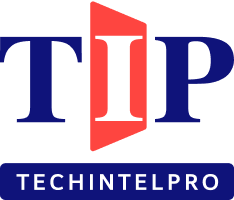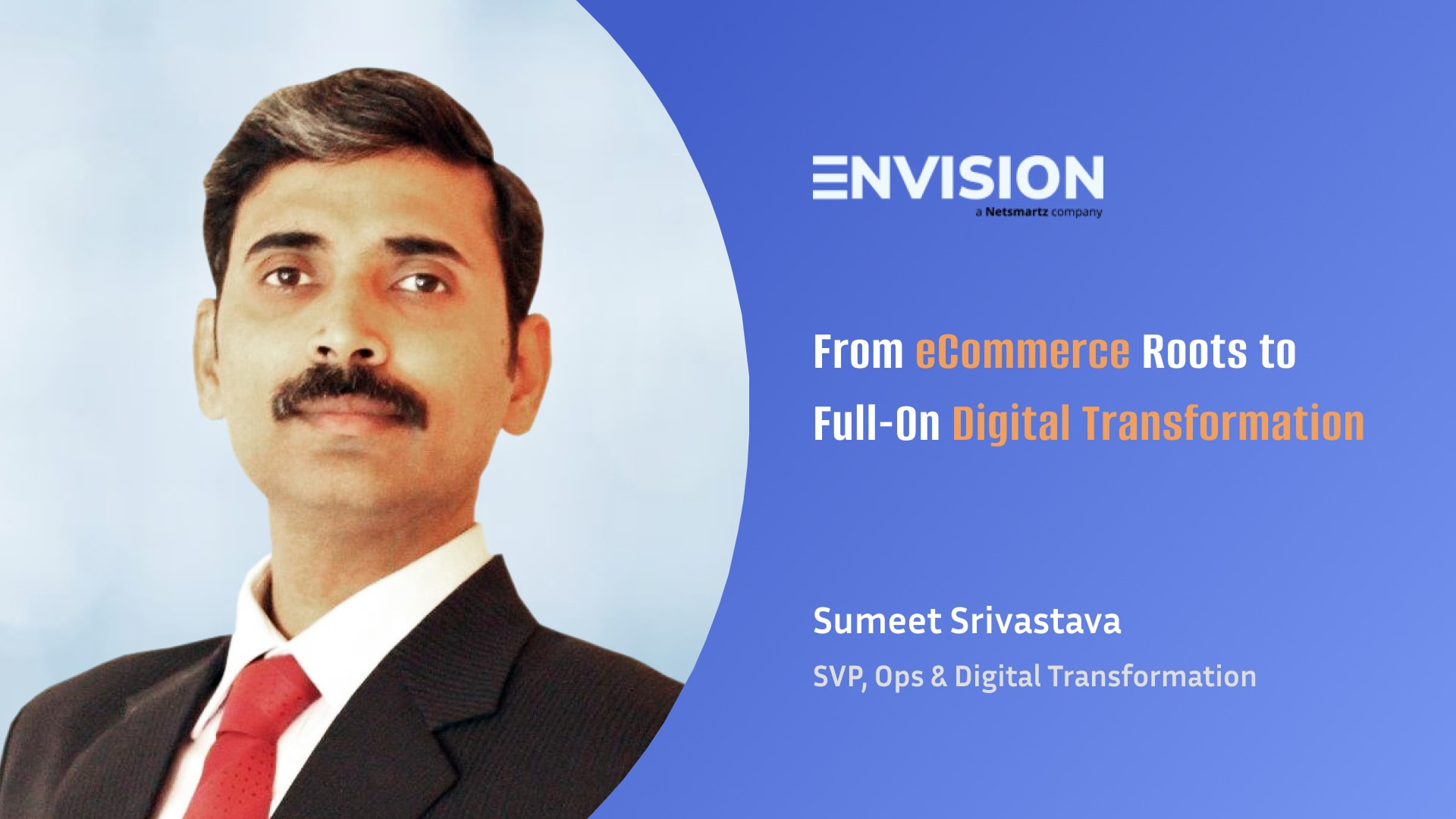

Tech should bend to business, not the other way around.
In this conversation, Sumeet Srivastava, SVP, Operations & Digital Transformation at Envision, shares how this principle shaped Envision’s evolution beyond single platforms, toward agile, integrated ecosystems that power both startups and global enterprises.
When I joined Envision over six years ago, my background was rooted in technology, especially eCommerce and CRM. At the time, Envision was largely known for its eCommerce practice, with Magento as our flagship platform.
Stepping into the SVP role, my vision was to take us beyond a single technology and build a practice that could deliver end-to-end solutions for enterprises across B2C, B2B, and marketplaces. I’ve always believed technology should bend to business needs, not the other way around. That meant becoming platform-agnostic and broadening our capabilities to meet clients where they are.
That vision has since evolved and scaled. Today, we work across leading platforms like Shopify, Salesforce Commerce, BigCommerce, and WooCommerce, while strengthening our integration expertise in CRM, ERP, and other enterprise systems. Partnerships with Adobe and Salesforce, coupled with deep investments in AI and Agentforce, have helped us sharpen our edge.
What began as a focused eCommerce solutions firm is now a versatile, enterprise-grade technology partner. And we’re still guided by the same principle: aligning IT with tangible business outcomes.
Our dual specialization in Salesforce Clouds and Adobe Commerce gives us a sharp market edge because it allows us to design truly connected digital commerce ecosystems.
B2C commerce is no longer just about storefronts; it’s about supercharging the entire customer journey. By combining Adobe Commerce with Salesforce Marketing Cloud, Sales Cloud, and AI-powered Agentforce, we help businesses go beyond transactions to deliver acquisition, engagement, and personalized experiences at scale. The result is a cohesive commerce environment that feels seamless to the customer and intelligent to the business.
Because we’re in the trenches of both ecosystems, we’re able to offer clients an honest, comparative lens—whether Salesforce Commerce Cloud’s native marketplace features or Adobe Commerce’s scalable extensions are the better fit. That flexibility is rare, and it ensures clients don’t get locked into a one-size-fits-all path.
On top of that, our MuleSoft expertise strengthens the foundation. It allows us to simplify integrations across ERPs, PIMs, and logistics systems, ensuring the architecture is scalable, maintainable, and future-ready.
That’s the real edge: we don’t just implement platforms, we architect ecosystems that are agile, intelligent, and aligned with business outcomes.
At Envision, we hold to one principle: scalability should not come at the cost of personalization. Customers today seek experiences that are fast, relevant, and uniquely theirs. That’s precisely what our three-pillar approach is built to empower.
First, speed of access to information. From predictive search to today’s AI-powered agents and avatars, we focus on helping customers find what they need instantly via their preferred medium, i.e., text, chat, or voice.
Next is intelligent decision support. True personalization isn’t just about showing the right product; it’s about empowering better choices. We use comparative product analysis, tailored recommendations, and contextual nudges to guide customers toward faster, smarter decisions.
Finally, technology-agnostic integration. Every business has its own ecosystem. By working across platforms like Salesforce, Adobe, Shopify and integrating with systems like ERP or PIM, we ensure that engagement strategies are both personalized and seamless within each client’s reality.
By anchoring on these three pillars, speed, intelligence, and flexibility, we help brands scale their engagement without losing the essence of human connection. That fine balance between reach and relevance is what defines our signature approach.
We understand that transformation isn’t a one-size-fits-all. Startups and global enterprises face very different challenges, and our playbooks are designed to cater to their respective needs.
For startups, the priority is speed and agility. We focus on lean architectures, rapid deployment cycles, and out-of-the-box solutions on platforms like Salesforce Commerce, Adobe Commerce, or Shopify. The goal is to minimize time-to-market while laying a foundation that effortlessly scales as the business grows.
For large enterprises, the equation is different. The focus is on integration, compliance, and enterprise-grade scalability. Here, our playbooks emphasize technology-agnostic solutions that fit into complex ecosystems, robust integrations with ERP, CRM, and PIM, and AI-driven personalization strategies that seamlessly operate across regions and business units.
What unites both ends of the spectrum is our consultative approach. We start with an in-depth understanding of the business model and customer journey, then design a roadmap that aligns with their goals—whether that’s rapid entry into a new market or a full-scale digital modernization.
The signature of our playbooks is adaptability. By holding to core principles, customer-centricity, agility, and measurable outcomes, we’re able to flex our approach without losing focus. That’s why we can be just as effective guiding a hyper-growth startup as we are steering a Fortune 500 enterprise.
Envision operates across the globe, but the team functions like well-tuned cylinders of an engine—always aligned. With teams across 10 countries, we deliver 24/7 services while staying close to our clients’ markets.
We maintain quality through four disciplines. First, process rigor: agile delivery, clear SLAs, and collaboration tools ensure consistency across borders. Second, tailored governance: whether it’s sprint-based transformation or time and material (T&M) based maintenance, our playbooks keep ownership and accountability clear.
Third, global collaboration with local sensitivity: our experts are trained to balance global standards with cultural and regulatory nuances. And finally, feedback loops: retrospectives and governance reviews ensure we’re constantly aligned and improving.
The result is a unified, distributed team that operates like a well-oiled machine: reliable, scalable, and responsive no matter where the client is located. And that is how a global team systematically delivers truly world-class outcomes.
At Envision, market expansion is always a data-backed move. The first thing we do is look for signals that a market is primed: recurring client requests, regulatory shifts, or inefficiencies where our expertise can create an outsized impact. For instance, when healthcare clients began struggling with patient engagement and compliance, we recognized that Health Cloud could address those challenges in a way that was both compliant and transformative.
From there, we move beyond instinct into structured evaluation. We study the total addressable market (TAM), growth patterns, and competitive dynamics. We test the waters with pilot programs or proof-of-concepts, defining clear success measures—whether that’s faster conversions, lower costs, or improved satisfaction scores. We also build ROI models that simulate best- and worst-case scenarios, making sure the financial upside holds even under stress.
Just as important is operational readiness. With delivery teams spread across countries, we ask ourselves whether we can support the said vertical at scale without diluting quality or speed. And once we do enter, we don’t stop measuring. Continuous ROI audits help us see what’s really moving the needle and pivot accordingly.
This balance of intuition, rigor, and live validation allows us to make confident bets on new markets. It’s why when we expand, it isn’t just about planting a flag but about building sustainable practices that deliver measurable business outcomes.
Over the next 12 months, we’ll be embarking on a journey that amalgamates global expansion, AI innovation, and industry-specific solutions.
We’re expanding in the Middle East, with our Dubai office serving as a strategic hub and a dedicated Salesforce team delivering local expertise at global standards.
Innovation remains central. To that end, we’ve recently launched three new productivity and engagement apps on Salesforce AppExchange (currently under review) and are developing new Agentforce use cases across Sales, Service, and Commerce Clouds. These efforts will enhance CRM and Commerce experiences, making them more intelligent, conversational, and personalized without compromising scale.
On the industry front, we’re rolling out verticalized cloud solutions, starting with Health Cloud and Education Cloud, to deliver tailored transformation playbooks for regulated sectors. In commerce, we’re enhancing AI-powered workflows for search, recommendations, and personalization across Adobe, Shopify, Salesforce Commerce, BigCommerce, and WooCommerce.
Together, these initiatives reflect our philosophy: technology should enable growth, not constrain it. The next 12 months are about scaling that philosophy through global reach, vertical depth, and AI-driven innovation.
Sumeet Srivastava is the SVP, Operations & Digital Transformation at Envision, where he helps global brands reimagine how they build, scale, and grow their digital ecosystems. With over two decades of experience in enterprise commerce and CRM, Sumeet brings a rare blend of technical acumen and business strategy.
He has led transformations for Fortune 500s and high-growth disruptors alike—often at the intersection of data, customer experience, and automation. At Envision, Sumeet is focused on helping organizations harness the full power of Salesforce and eCommerce platforms, with AI not as a bolt-on tool, but as the backbone of modern digital engagement.
Envision is a global technology partner that operates at the crossroads of Salesforce and eCommerce innovation. With presence in over 10 countries, Envision helps some of the world’s most ambitious enterprises and high-growth disruptors reimagine how they engage customers, scale platforms, and unlock growth.
The company bundles deep expertise in Salesforce Clouds—spanning Sales, Service, Marketing, Commerce, Health, and Education—alongside enterprise-grade expertise in Adobe Commerce, Shopify, BigCommerce, and WooCommerce. By leveraging its close partnerships across both Salesforce and Adobe ecosystems, Envision weaves AI and seamless integration into every engagement, turning digital transformation into a true strategic advantage.
Learn more at envisionfc.com